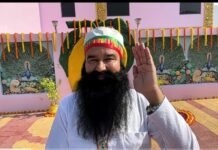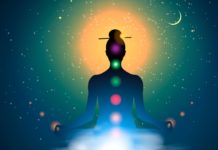Gandhi Jayanti is a special day in India, celebrating the birth of Mohandas Karamchand Gandhi. He was a respected activist-lawyer who played a key role in ending British colonial rule. Born on October 2, 1869, Gandhi, also called Bapu Ji, is remembered as the “Father of the Nation.” The United Nations honored Gandhi’s principles by declaring the first International Day of Nonviolence on June 15, 2007.
Table of Contents
WHO WAS MOHANDAS KARAMCHAND GANDHI?
Mohandas Gandhi, commonly known as the Father of the Nation, was a revered freedom fighter born on October 2, 1869, in Porbandar, India. His father, Karamchand Uttamchand Gandhi, served as the state’s chief minister. Putlibai, his mother, was Karamchand’s fourth wife. Gandhiji completed his elementary schooling in Porbandar. He then pursued legal education in London in 1887. Returning to India in 1891, he began his legal career in Rajkot before working as a lawyer in South Africa for an Indian Muslim businessman.
THE JOURNEY OF GANDHI TO BAPU
Gandhiji experienced the prejudice Indians faced in South Africa, motivating him to dedicate his life to justice and equality. Establishing the Natal Indian Congress in 1894, he introduced the philosophy of peaceful civil disobedience, Satyagraha, centered on truth, nonviolence, and self-sacrifice. Leading campaigns against discriminatory laws in South Africa, Gandhiji returned to India in 1915, becoming a prominent leader in the struggle for independence.
GANDHI Ji’s CONTRIBUTIONS TO THE INDIAN INDEPENDENCE MOVEMENT
Upon his return to India, Gandhi initiated several significant movements against British authority, including the Non-Cooperation Movement (1921–1922) and the Quit India Movement (1942). His nonviolent protest tactics inspired millions and played a crucial role in India’s declaration of independence in 1947.
Gandhi’s influence extended beyond India. His philosophy of nonviolent resistance served as an inspiration for movements worldwide, including the civil rights movement led by Martin Luther King Jr. in the United States. The principles of truth, nonviolence, and self-sacrifice, central to Satyagraha, continue to be foundational in today’s struggles for justice and equality.
CELEBRATING GANDHI JAYANTI
India observes Gandhi Jayanti as a national holiday, with people visiting his memorials, attending prayer gatherings, and reading his writings. Various activities include watching films or documentaries about Gandhi, exploring books on his philosophy, planning peace walks. You can also participate bt volunteering at homeless shelters, and contributing to causes aligned with Gandhiji’s principles.
LEGACY OF MAHATMA GANDHI
People all around the world admire Gandhi Ji for his non violence ideology. His ideology has inspired movements such as Martin Luther King Jr.’s civil rights movement. His commitment to human rights, racial equality, social justice, and religious tolerance stood out. Gandhi’s simple lifestyle and emphasis on sustainability continue to inspire people worldwide, impacting modern movements for equality and justice.
COMMON BIRTHDAY OF TWO GREAT LEADERS
Born on October 2, 1869, Mahatma Gandhi shares this birthday with Lal Bahadur Shastri, India’s second prime minister, born on October 2, 1904. Renowned for his leadership during the 1965 Indo-Pakistani War, Shastri popularized the phrase “Jai Jawan Jai Kisan” (Hail the Soldier, Hail the Farmer). Both leaders, with the rallying cry “Do or Die,” played significant roles in India’s struggle for independence.
GANDHI JAYANTI AROUND THE WORLD
Gandhi Jayanti is a global celebration, observed not just in India but around the world. Many nations and cultures honor Bapu in different ways. People light candles in front of Gandhi’s statue in various countries to start the celebration. They organize public events, seminars, and exhibitions to spread awareness of Gandhian principles. In different parts of the world, individuals actively participate in acts of kindness, promoting the spirit of nonviolence and community service.
CONCLUSION
Gandhi Jayanti holds a significant place among national celebrations, marking the birth of Mohandas Karamchand Gandhi. He, India’s revered activist-lawyer, played a crucial role in ending British colonial rule. Born on October 2, 1869, Gandhi, also known as Bapu Ji, is commemorated as the “Father of the Nation.” The United Nations honored Gandhi’s principles by declaring the first International Day of Nonviolence on June 15, 2007.




































